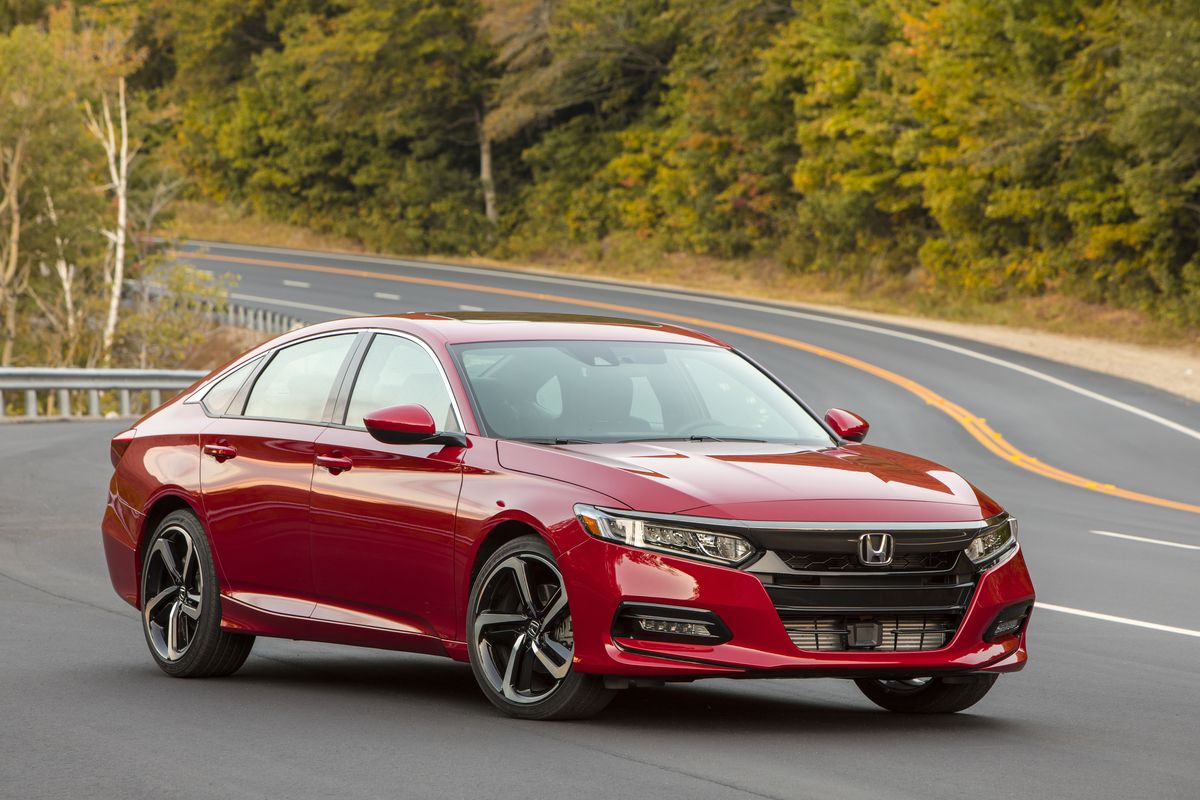
1. Honda Accord
Decades of consistent evolution and consistently excellent execution have shaped Honda's Accord into America's best family sedan. Just look at this latest example, with its long, low-slung shape and crisply designed interior. Slide behind its wheel, fire up the engine and take a drive, and you'll discover class-leading handling that's sporty and that doesn't come at the expense of a comfortable ride quality. It's little wonder why we've named the Honda to our annual 10Best Cars list a record 33 times, more than any other vehicle.
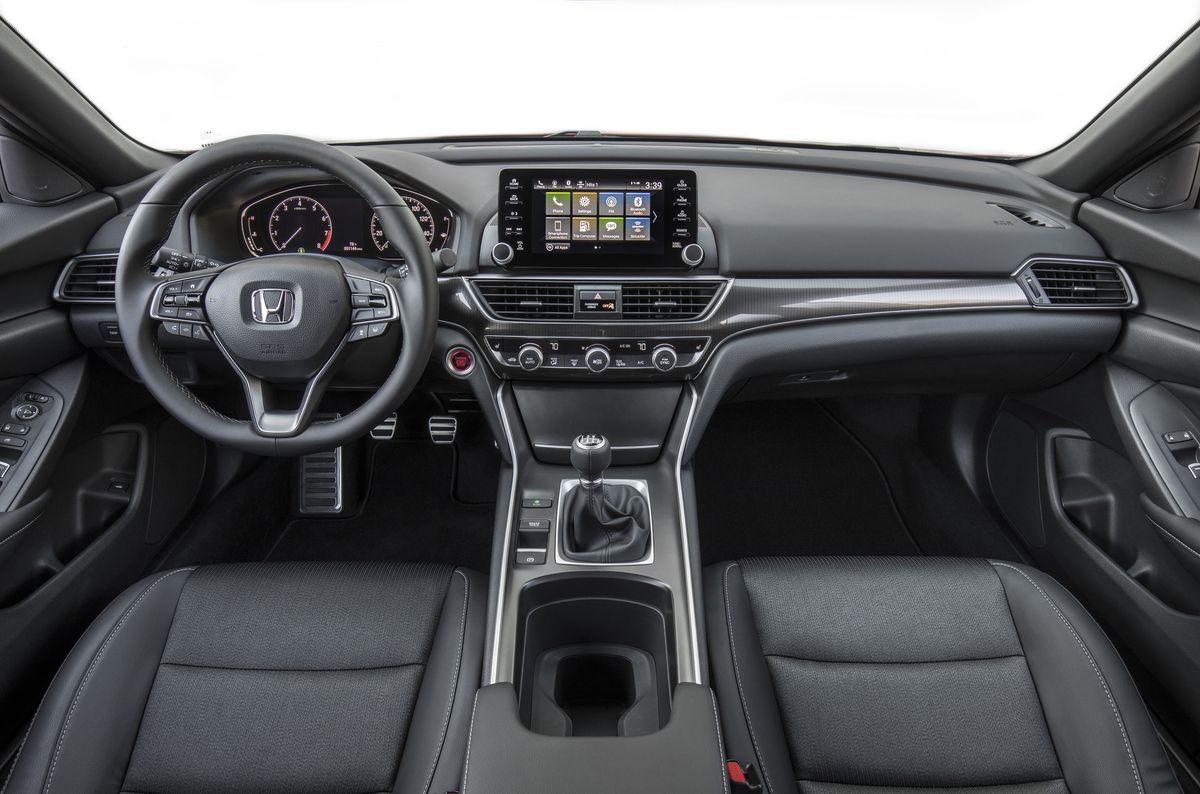
1. Honda Accord
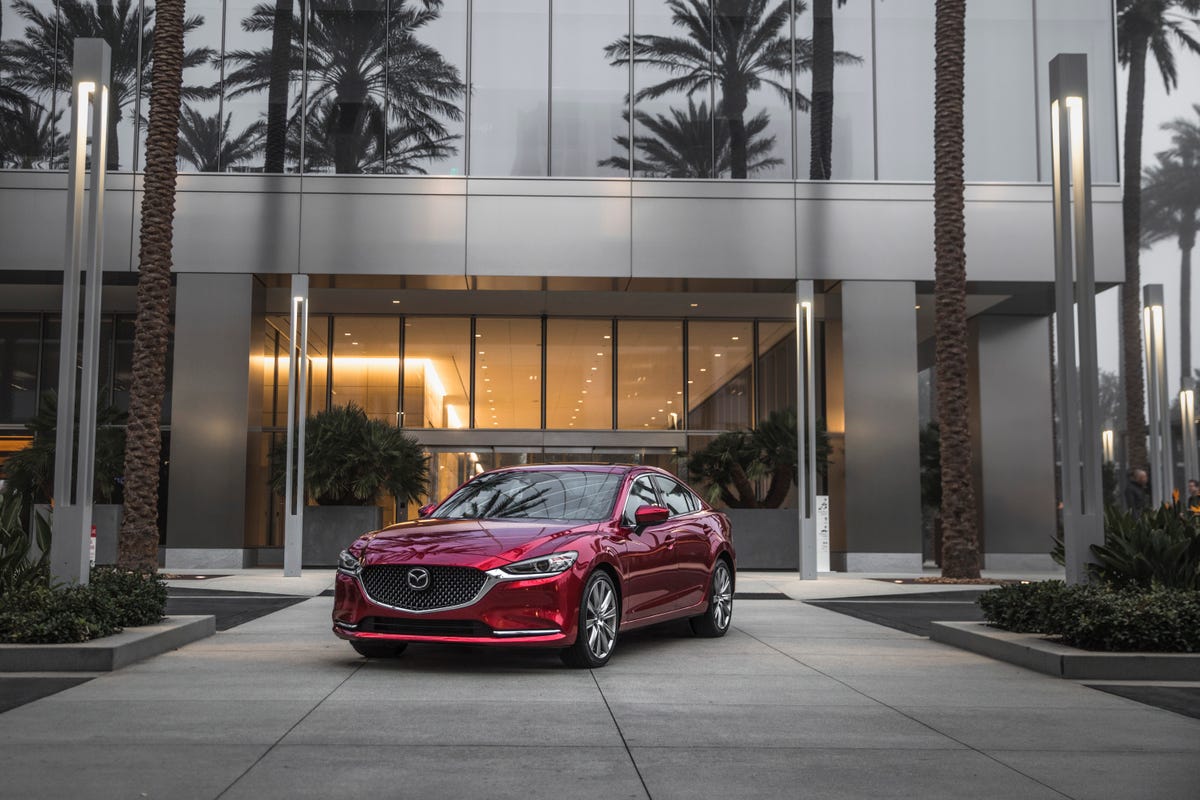
2. Mazda 6
Mazda’s gorgeous 6 is proof that all family sedans are not created equal—even when you consider the segment's recent embrace of style and sportiness. This is a mid-size four-door that looks and feels a class above all others, and most people would rightfully mistake it for an entry-luxury car. But this is no BMW 3-series competitor; it is instead priced among everyday offerings. The Mazda drives as smooth as it looks, with neat handling and fluid moves. A turbocharged engine upgrade recently joined the lineup, bringing much-needed horsepower to the Mazda 6 equation, and a Signature trim elevates the already luxurious interior to new heights.
Mazda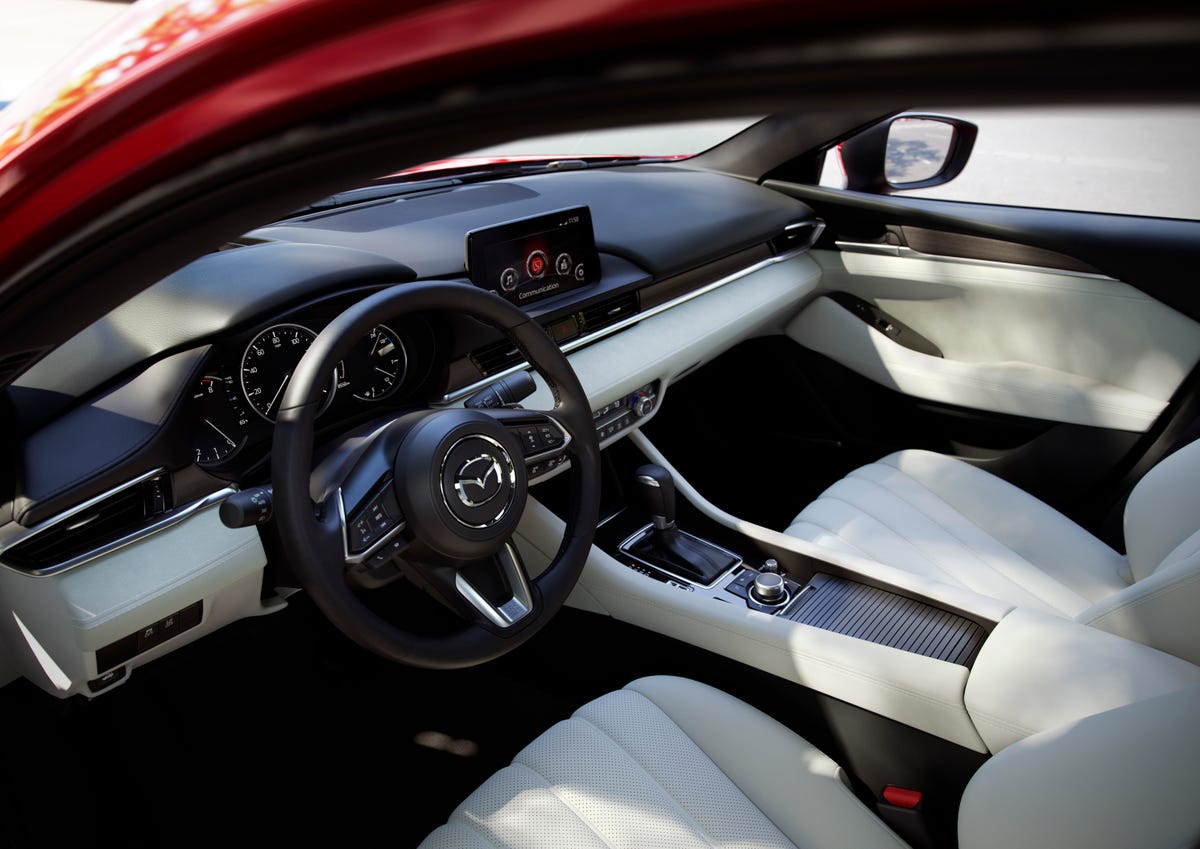
2. Mazda 6
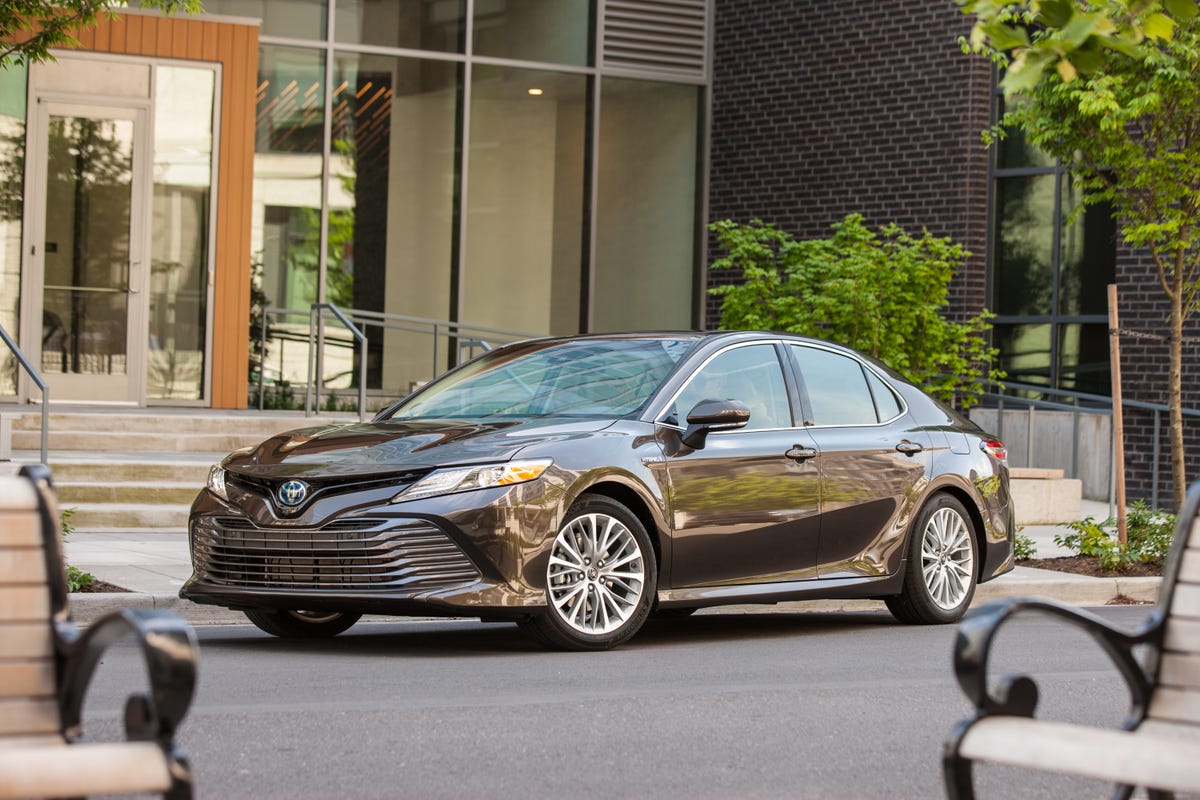
3. Toyota Camry
Toyota’s Camry has long been synonymous with "family sedan," a term that until recently carried bleak, appliance-like connotations. The Camry's recent redesign has recast that association in a new, less boring light. The exterior design is expressive, and Toyota squeezes some driving fun out of its mainstream four-door like it never has before. The Camry even keeps its optional V-6 engine while more and more competitors abandon this robust engine type for smaller, turbocharged engines. As such, Camry buyers can opt for a zesty 301-hp V-6 over the base four-cylinder engine; those looking for more fuel efficiency and general quietness can still opt for the fuel-sipping hybrid powertrain. Regardless of which engine you choose, this is the best Camry in years, and rightfully sits near the top of its class.
Toyota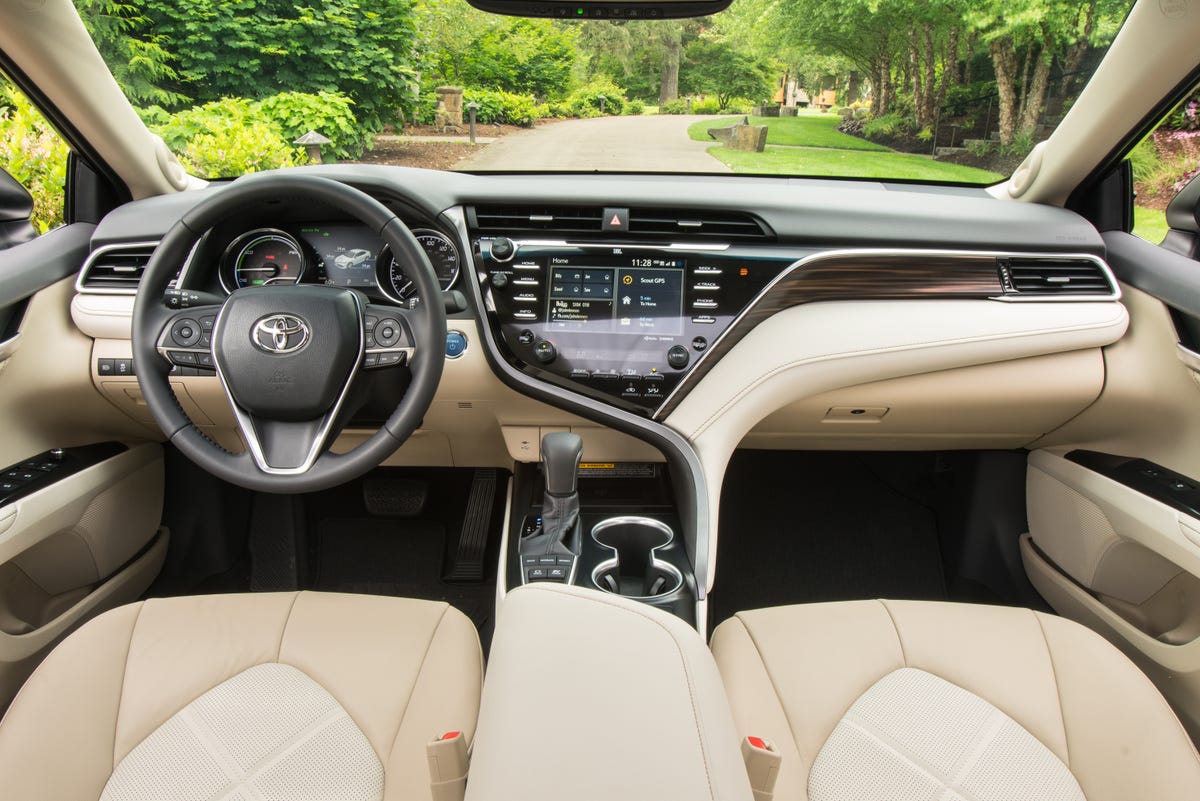
3. Toyota Camry
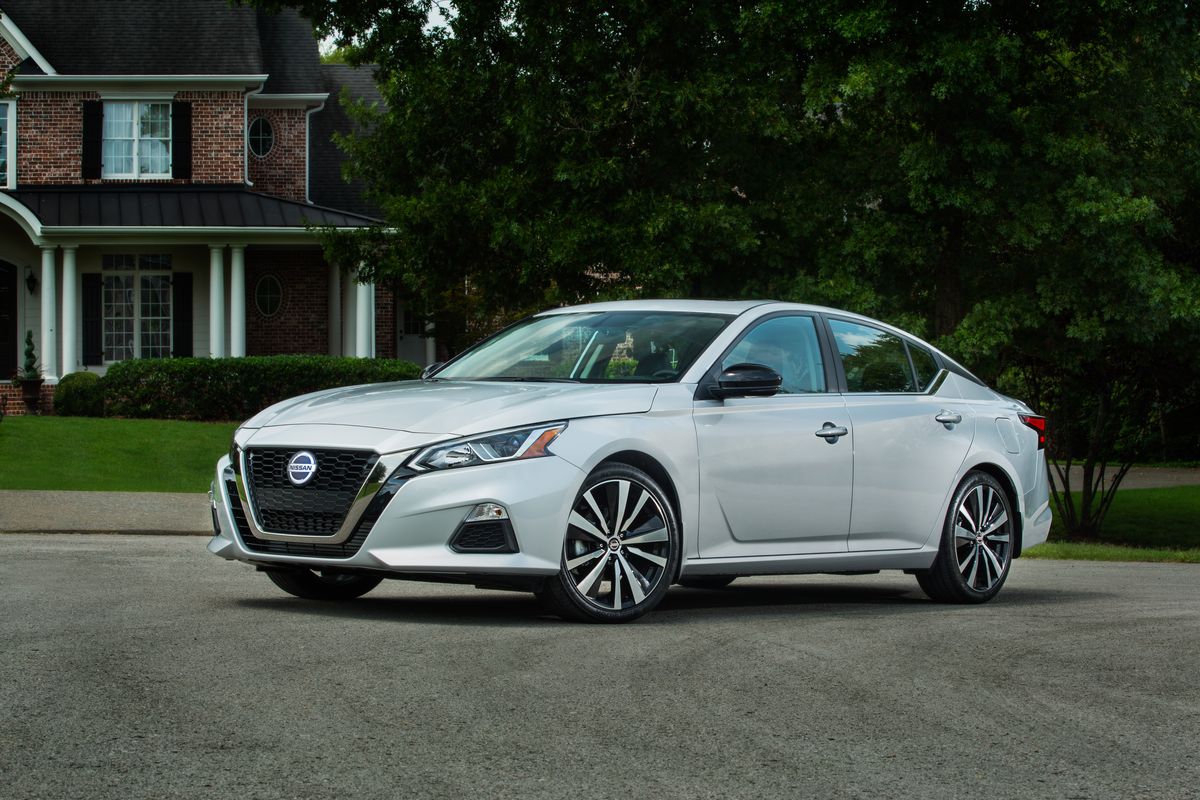
4. Nissan Altima
Redesigned this year, Nissan's Altima takes a huge step forward relative to its predecessor. The car looks good, and it even offers an innovative variable-compression gas engine option and a new all-wheel drive powertrain. The reinvigorated sedan is at its best in higher-priced trims—lesser models' interior quality and driving dynamics are merely so-so—but every model adds contemporary infotainment features and driver-assistance technology. It’s too bad you can only pair all-wheel drive with the standard 188-hp four-cylinder engine, and not the high-tech 248-hp variable-compression turbo engine. Given how rare all-wheel-drive options are in this segment, however, the Altima's AWD option deserves praise, even if it comes with a less-than-ideal engine pairing.
Nissan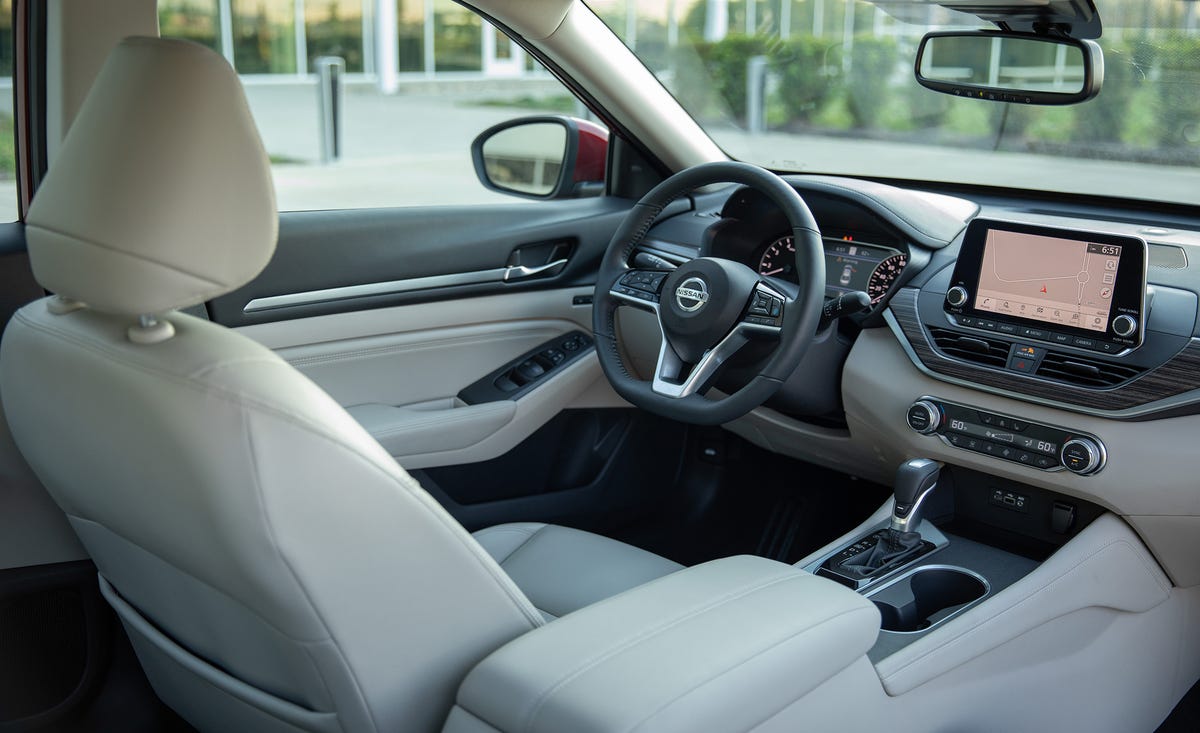
4. Nissan Altima
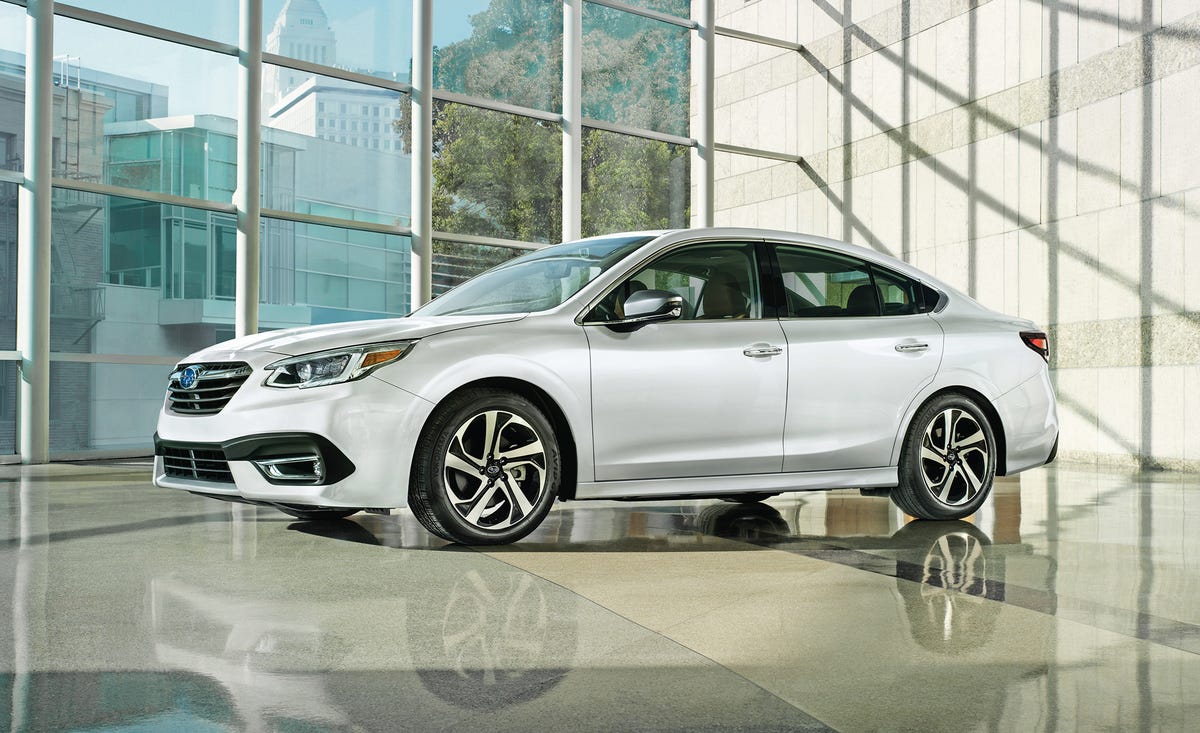
5. Subaru Legacy
Whatever you might think about the redesigned-for-2020 Subaru Legacy's leaner overall look, all-new interior, and new turbocharged engine option, it's still the all-wheel-drive choice in this segment. Sure, a few other mid-size sedans offer all-wheel drive as an option—but the Legacy has it standard, along with a warm-and-fuzzy outdoorsy image shared with the Subaru lineup overall. With top-notch active safety equipment, a huge (optional) touchscreen, and competent and comfortable driving dynamics, the Legacy is a solid choice.
Subaru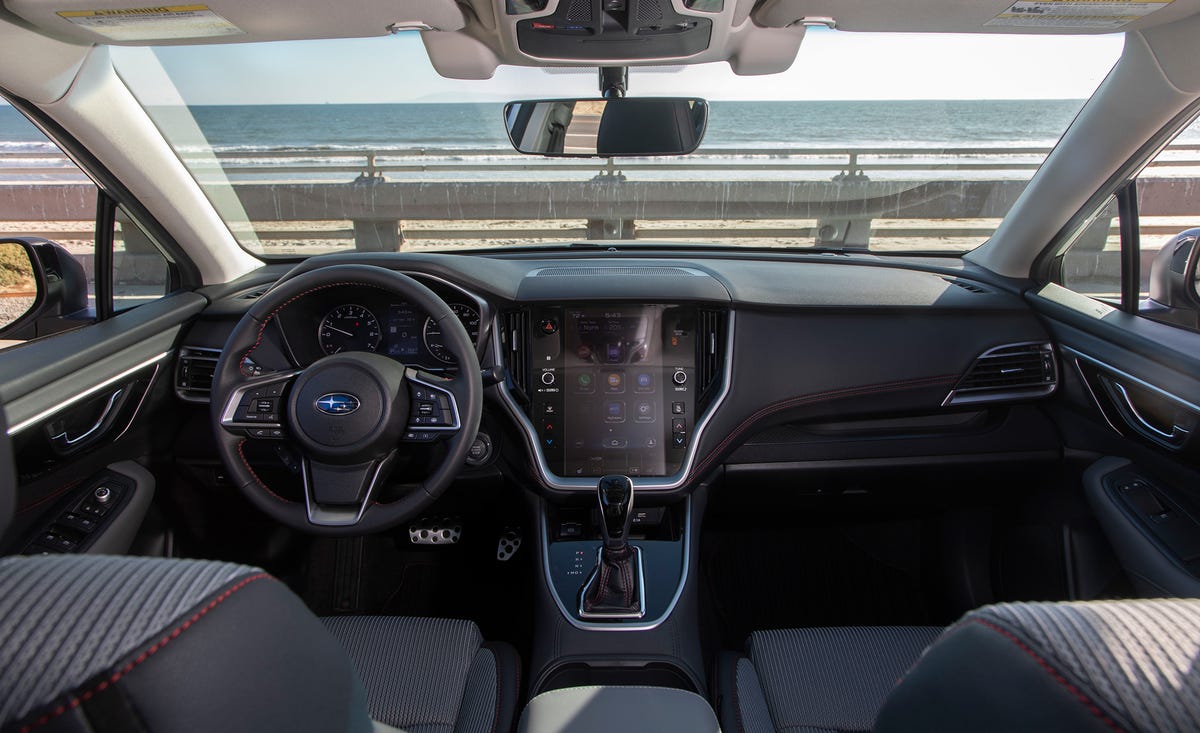
5. Subaru Legacy
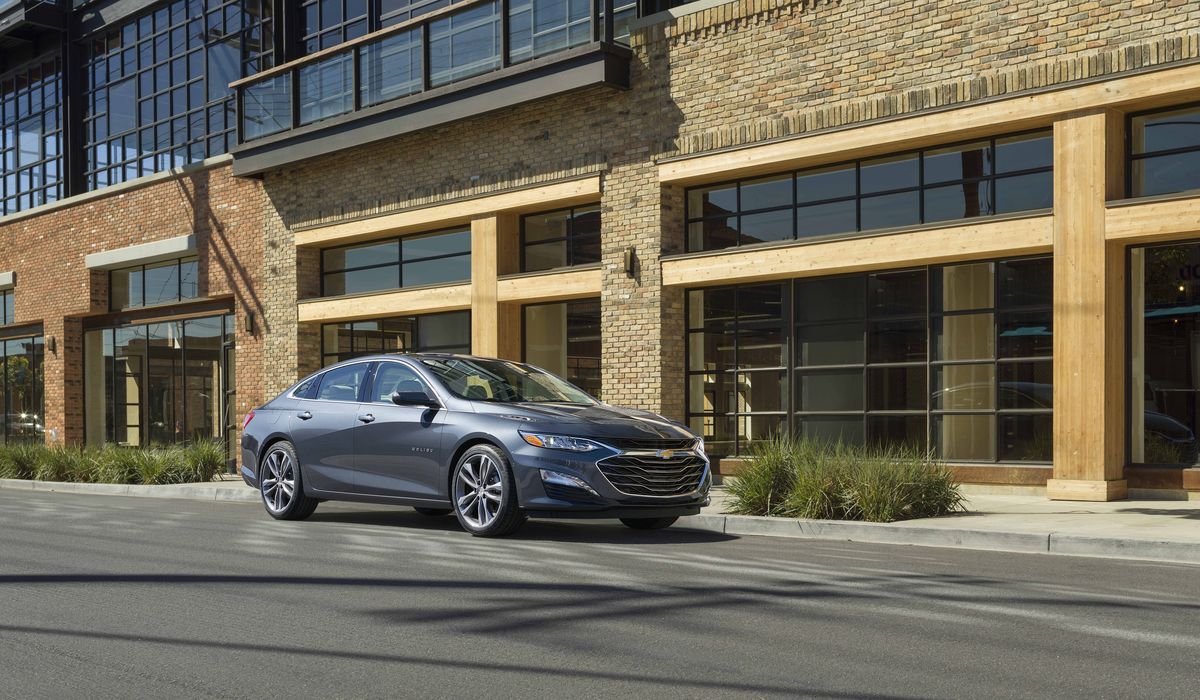
6. Chevrolet Malibu
Unlike several other four-doors that GM has announced it will stop producing in 2019, the Malibu sedan still has a place in Chevy's lineup. That's good for family-sedan shoppers, because Chevrolet’s mid-sizer is attractive and its suspension neatly balances secure handling with a comfortable ride. Most versions have an excellent infotainment system and numerous of driver-assistance features—lower-priced models don’t, however. An extremely efficient hybrid version highlights the trio of powertrains that also includes 1.5- and 2.0-liter turbocharged four-cylinders.
Chevrolet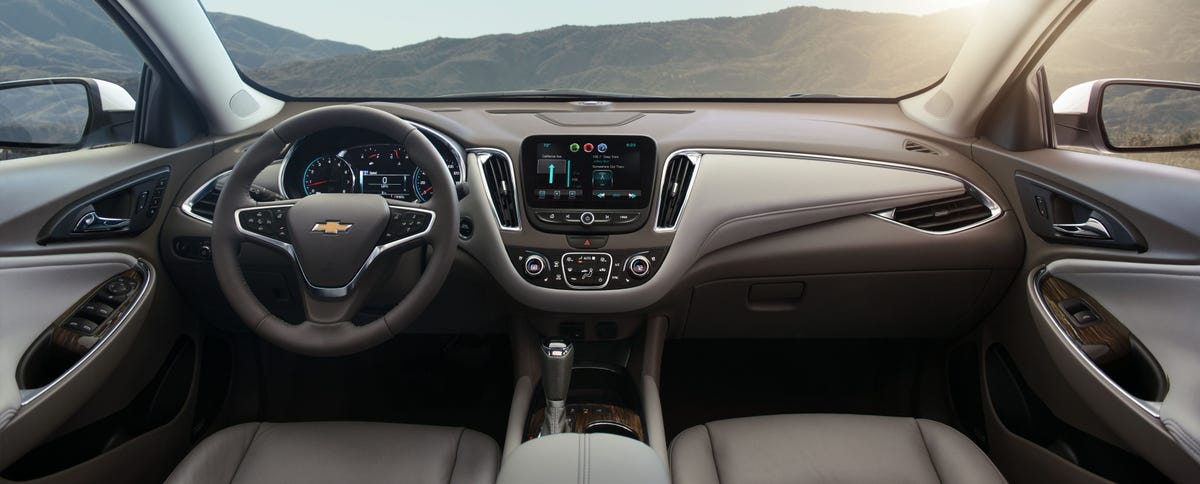
6. Chevrolet Malibu
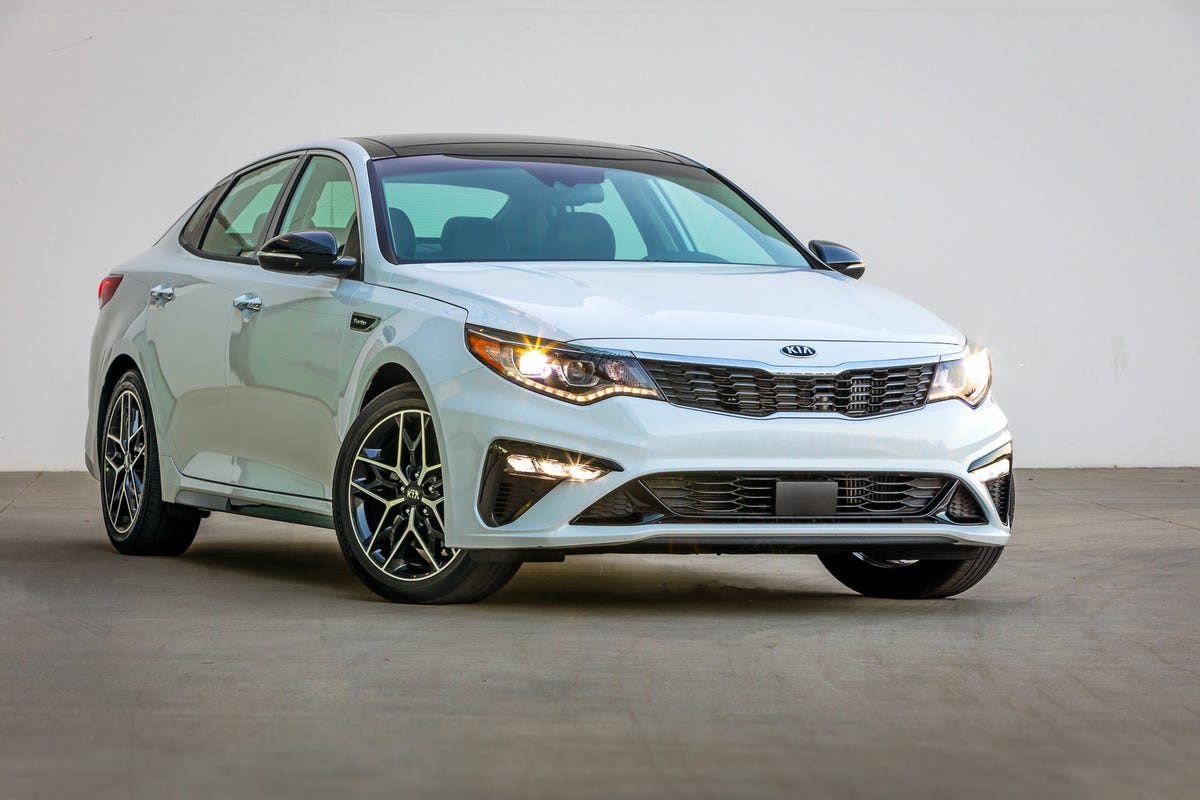
7. Kia Optima
The Kia Optima is the Hyundai Sonata’s spicier-looking cousin—the two are mechanically similar and share pretty much the same trio of four-cylinder engines, as well as hybrid and a plug-in hybrid options. Its general refinement and upscale cabin make it an excellent value, and there is a lot of standard equipment to further sweeten the deal, including Apple CarPlay and Android Auto phone integration and driver-assistance equipment such as automated emergency braking and lane-keeping assist. The Kia’s average ride and handling and the hybrid models’ back-of-the-pack efficiency hold it back in our rankings.
Kia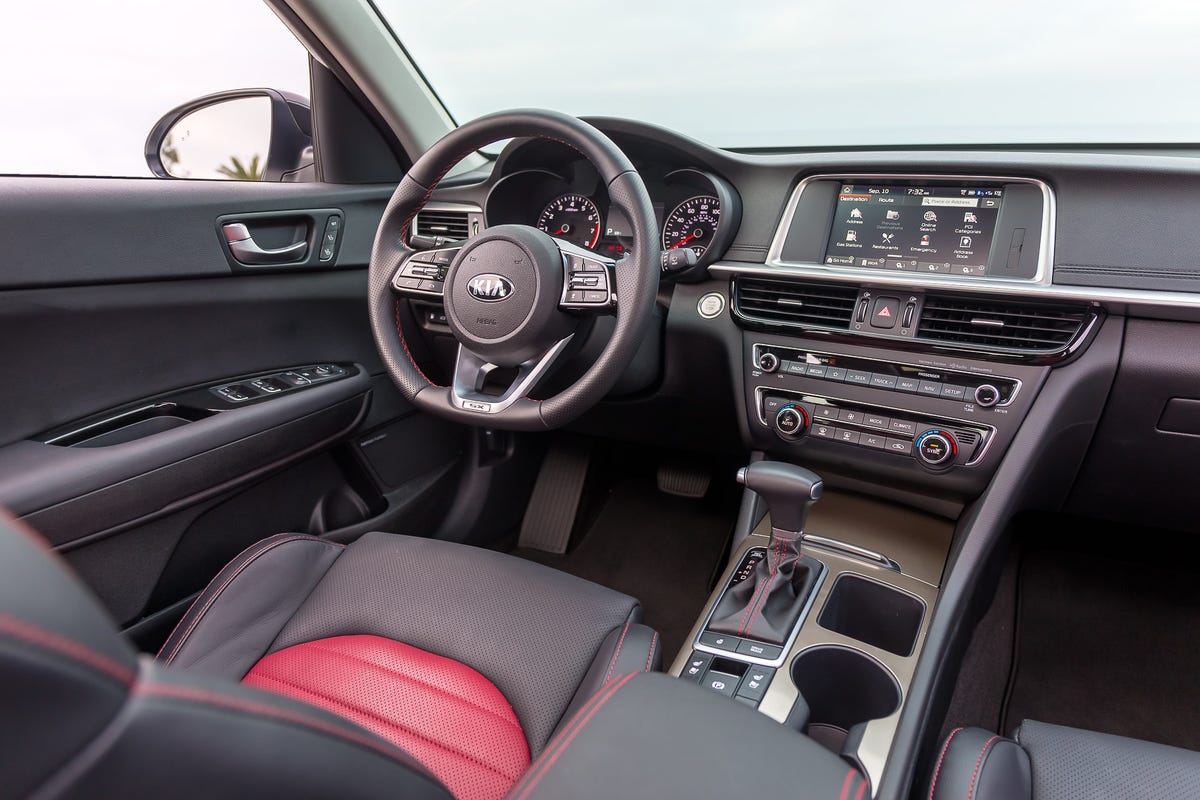
7. Kia Optima
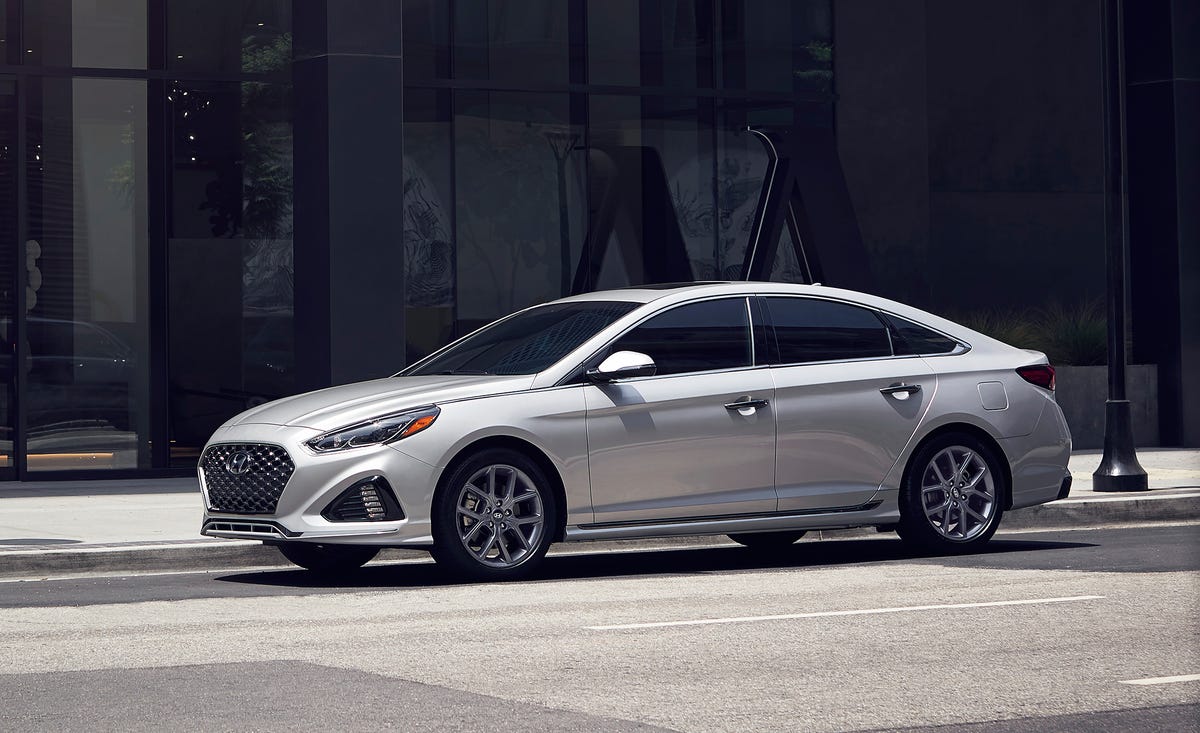
8. Hyundai Sonata
Even though it isn’t as stylish as its immediate predecessor, today’s Hyundai Sonata remains a solid entry in the mid-size segment. Buyers can choose between a fuel-efficient 176-hp four-cylinder in the Eco model and a powerful 245-hp turbocharged four-cylinder, plus there is a gas-electric hybrid and even a plug-in hybrid. With a serene cabin and a smooth ride, the Sonata aims for the middle and succeeds, even if it doesn’t feel as special as some of the better-selling, higher-style sedans found later in this roundup. Not good enough? Wait for the all-new, knockout 2020 model; we've yet to drive it yet, but boy does it look impressive.
Hyundai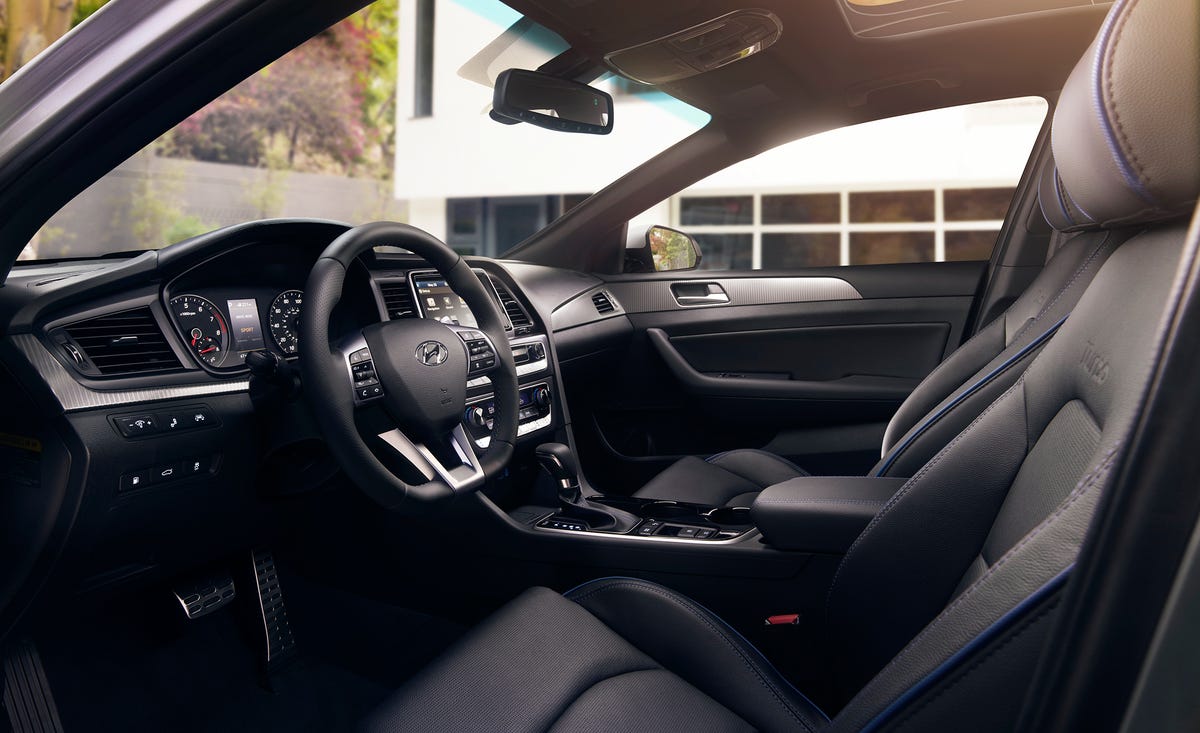
8. Hyundai Sonata
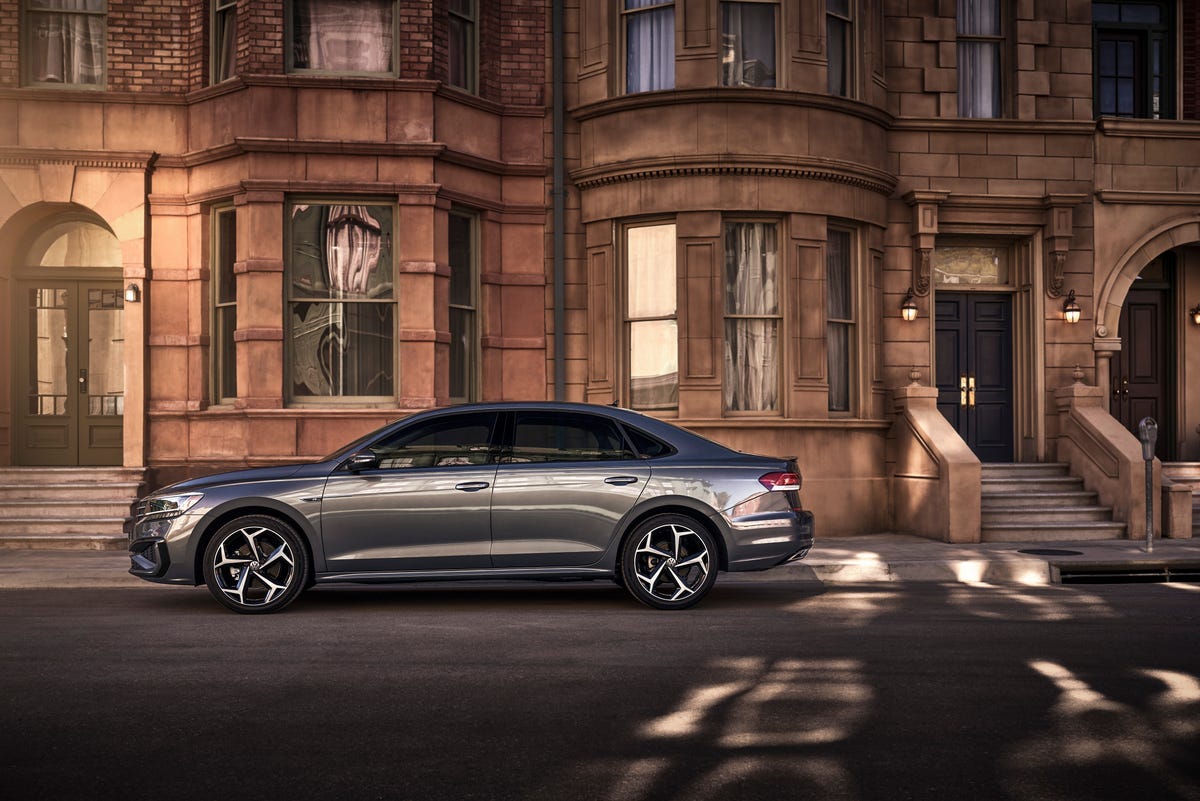
9. Volkswagen Passat
The Volkswagen Passat no longer hails from Germany, at least not directly. Volkswagen has been building the sedan here in the U.S. since 2011, and this version is optimized for American tastes. (A different, more upscale Passat is sold in Europe.) Standout features include its spacious back seat, copious standard driver-assistance features, and solid road manners. For 2020, the Passat is heavily updated with new styling and a fresh interior, while its previously optional 280-hp V-6 has been dropped, leaving the 174-hp turbo four-cylinder and six-speed automatic as the lone powertrain.
Volkswagen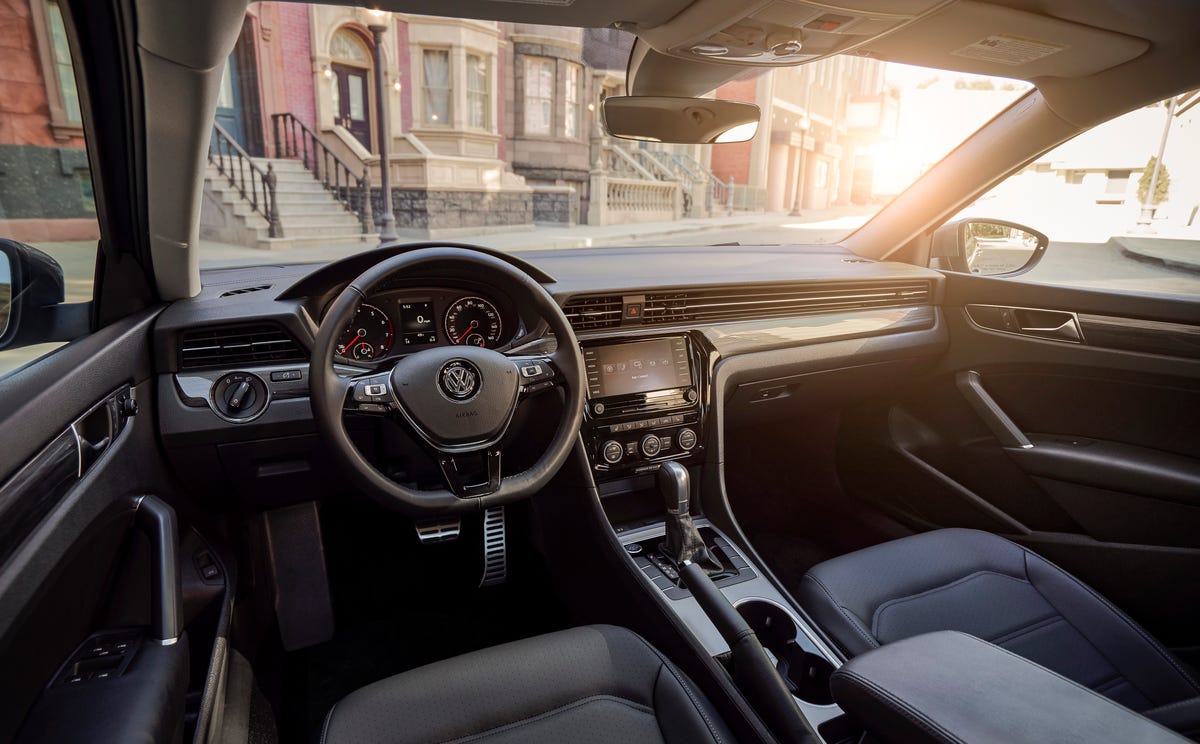
9. Volkswagen Passat
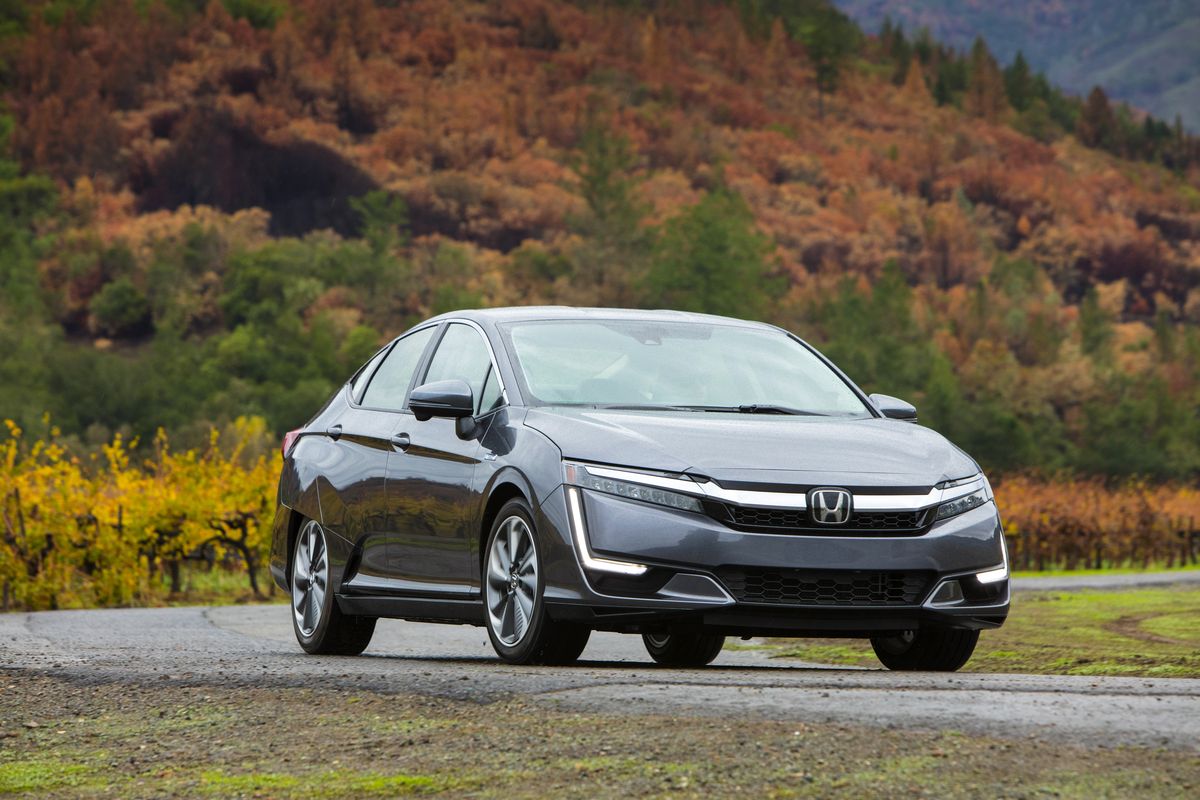
10: Honda Clarity Plug-In Hybrid
Honda’s Clarity lineup poses a triple-threat: There is a plug-in hybrid (covered here), a pure-electric model, and one powered by a hydrogen fuel-cell. They all look pretty much the same—so, kinda odd. The plug-in’s gas-fueled engine primarily acts as a generator, while the electric motor is the primary motivator. Hence, the Clarity Plug-In Hybrid (PHEV) drives a lot like a fully electric car. (There are circumstances under which the gas engine contributes torque to the drive wheels, but they’re rare.) With its ability to refuel at gas stations when its battery runs out (after 48 miles of EV-only driving, per the EPA), the Clarity can make it across the country without needing to plug in.
Honda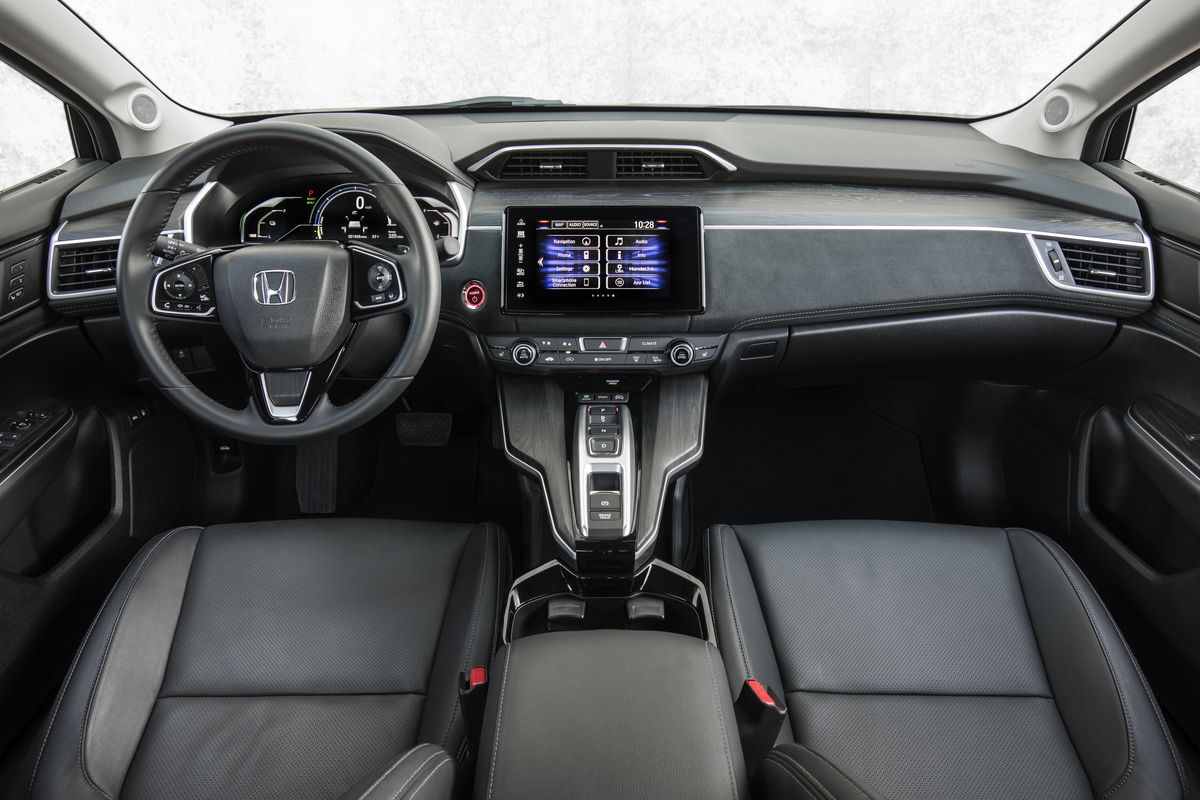
10: Honda Clarity Plug-In Hybrid
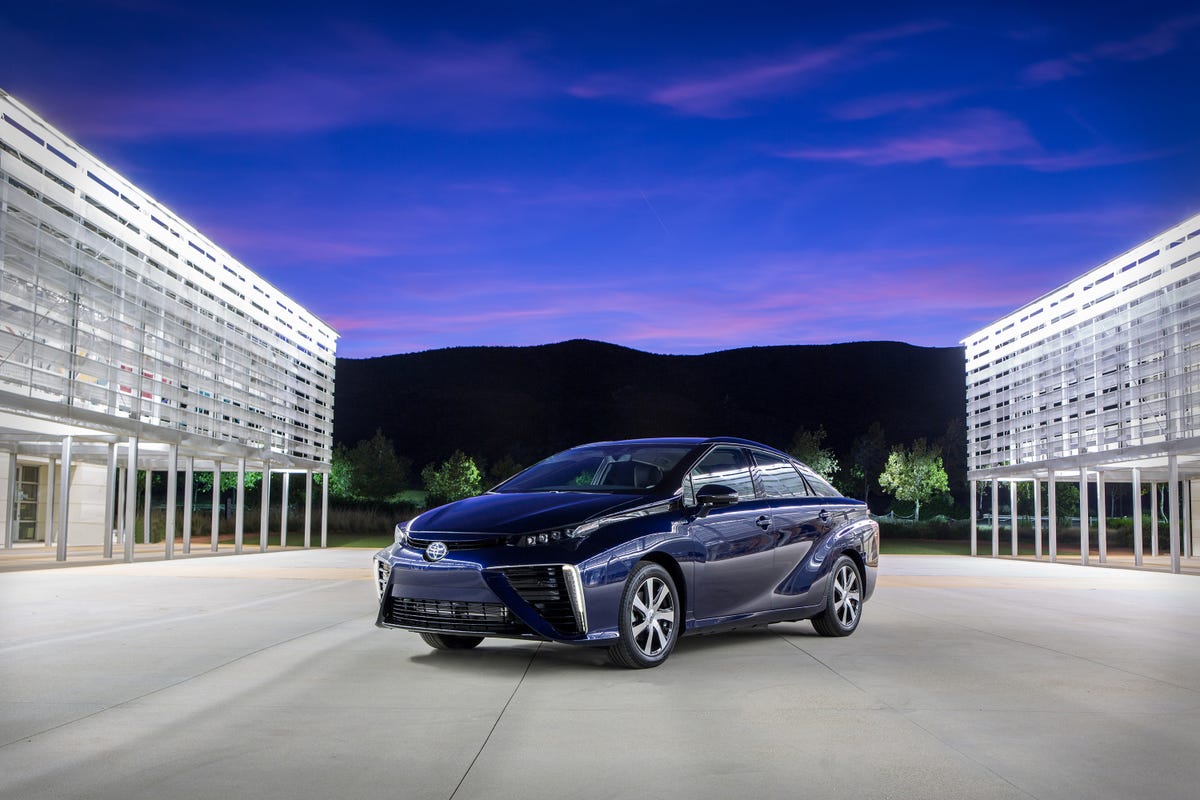
11: Toyota Mirai
Toyota's futuristic Mirai is not like the other mid-size sedans on this list. Not only does it not look like those four-doors—or many other normal automobiles, for that matter—but the Toyota runs solely on hydrogen fuel and its only emissions are water vapor. No gas, no diesel, no plugging the car in for electricity. Total driving range per hydrogen fill-up is about 300 miles, and each top-up takes roughly five minutes, far better than juicing up most pure-electric alternatives. Well, so long as there is a hydrogen station nearby. Hence why the Mirai is only sold or leased in California, the only place where a nascent infrastructure supporting hydrogen refueling exists.
Toyota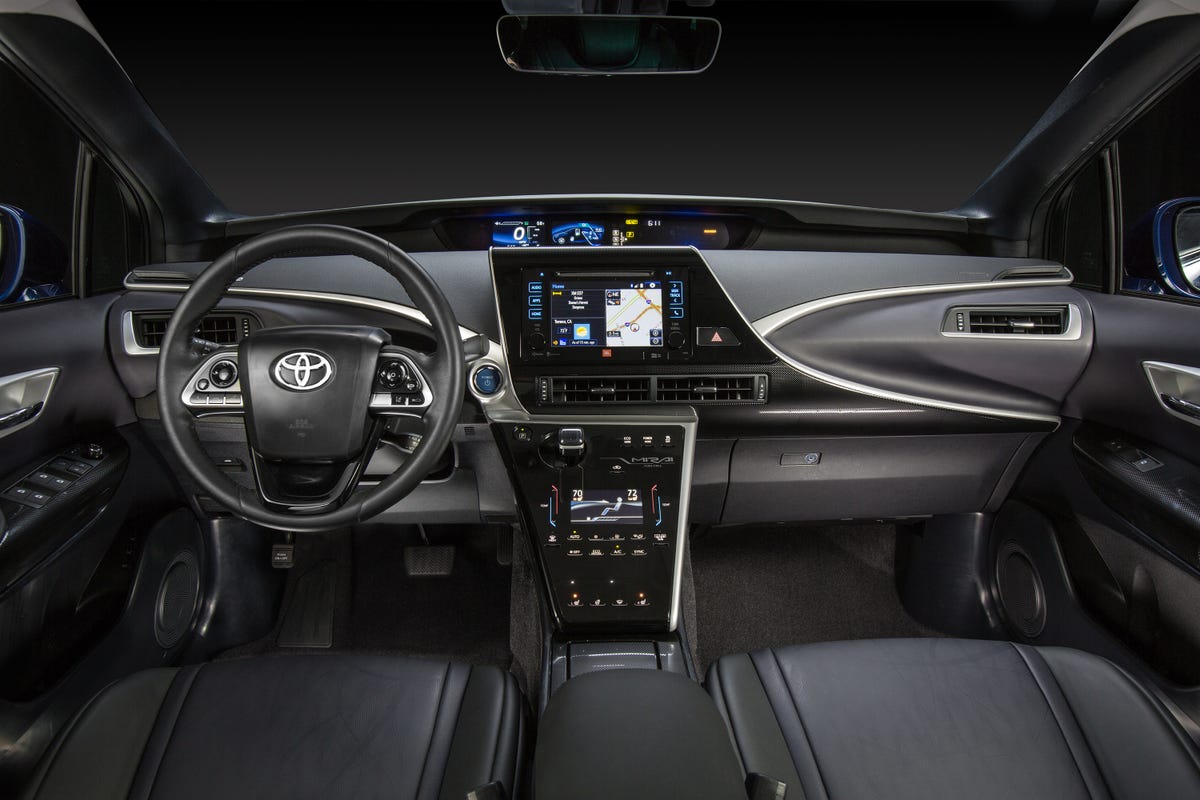
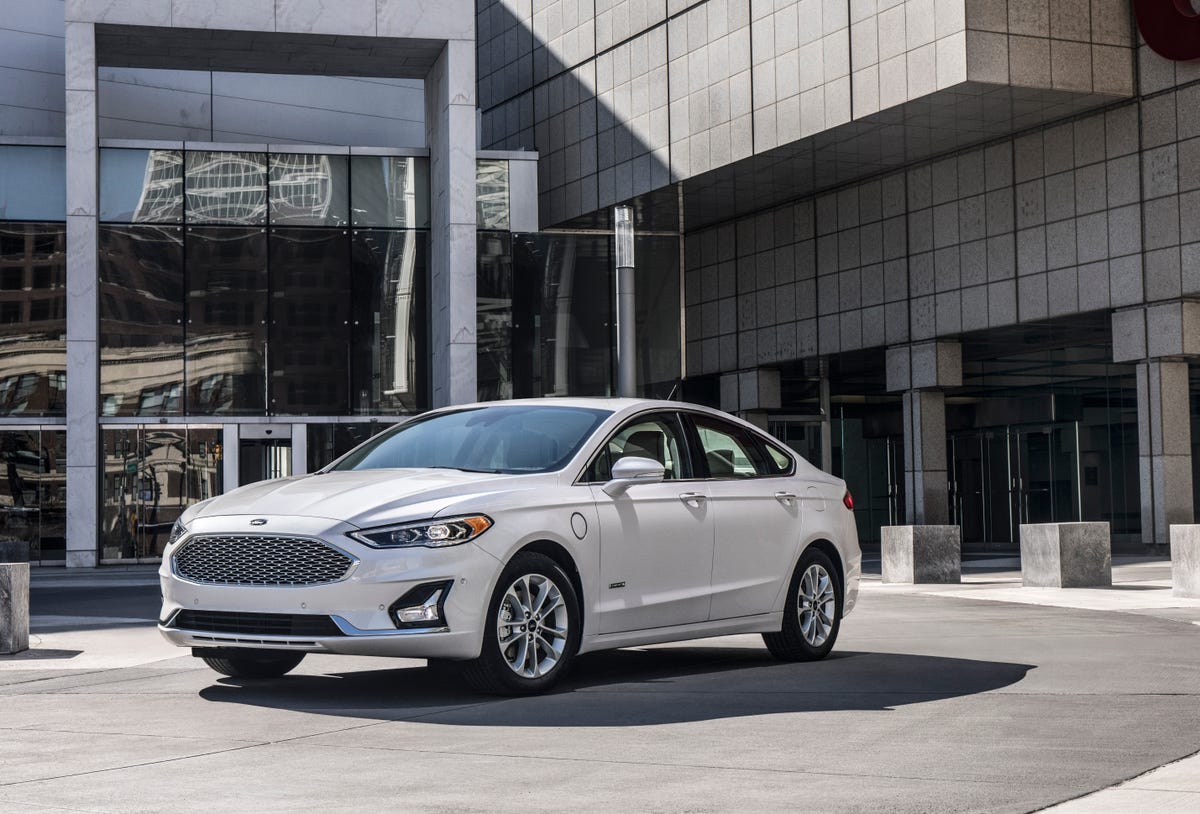
12: Ford Fusion
The Fusion is not long for this world, what with Ford's plan to stop making passenger cars. Myriad engine options include a potent 245-hp four-cylinder and powerful 325-hp twin-turbo V-6, and there are gas-electric hybrid and plug-in hybrid choices. A six-speed automatic is the only transmission option for the non-hybrid Fusions, which also are available in front- and all-wheel-drive forms. (The hybrids are front-drive-only.) While the Sport model has athletic handling and the most powerful engine, it's still less engaging to drive than rivals that rank much higher on this list.
Ford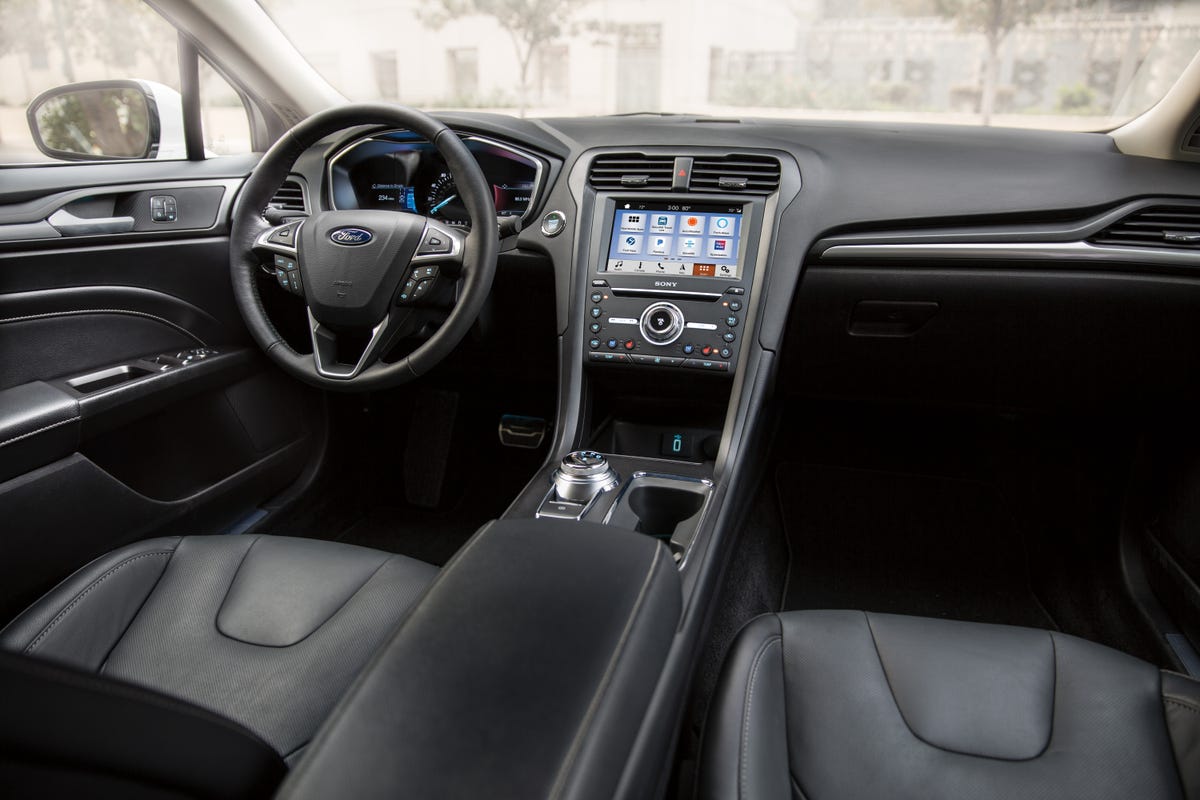
12: Ford Fusion
By: Car and Driver


No comments:
Post a Comment